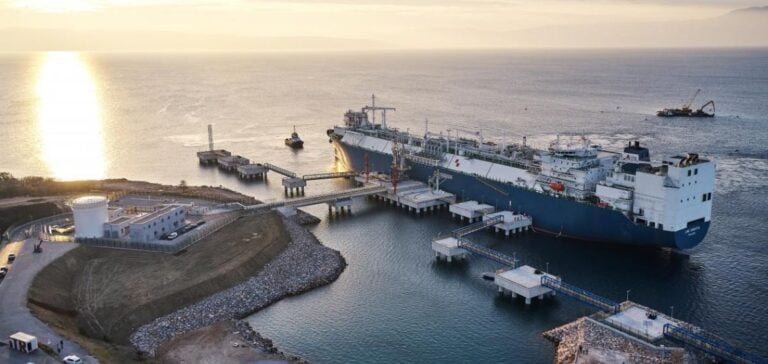Croatia consolidates its position as a central player in the European liquefied natural gas (LNG) market. Buoyed by extreme weather conditions in the Eastern Mediterranean, where heatwaves drove up demand, Croatia recorded a massive influx of LNG in July 2023.
The country imported 206,000 metric tons of LNG, the highest volume for this month since 2021, surpassing imports from many other European countries.
The Krk regasification terminal plays a central role in this dynamic.
Thanks to its robust infrastructure and optimized storage capacity, Croatia has become a leading hub in Southeast Europe.
The country’s geographical location, combined with a clear energy strategy, enables it to capture cargoes that would otherwise have been destined for markets such as North-West Europe, where imports are in decline.
Adaptability and security of supply
Croatia is more than just an LNG gateway.
Since the start of the conflict between Russia and Ukraine, the country has stepped up its efforts to become a key supplier of natural gas to its neighbors, notably Hungary and Slovenia. This strategy is based on increasing regasification capacity and developing new pipelines.
The aim is to secure gas supplies in a region where demand continues to grow, particularly as winter approaches.
The Mediterranean region, of which Croatia is a part, currently benefits from higher LNG prices than those observed in North-Western Europe.
As of August 16, 2023, the Eastern Mediterranean LNG tariff stood at $12.832/MMBtu, a significant premium over other European markets.
This price differential attracts market players with transport flexibility, who prefer to deliver their cargoes to Croatia rather than to destinations with lower margins.
Geopolitical Challenges and Winter Outlook
The near future looks complex for Croatia and its regional partners.
The possible expiry of the gas transit agreement between Russia and Ukraine could have significant repercussions on gas supplies to Southeast Europe.
Currently, around 40 million cubic meters per day transit through the Sudzha interconnection point.
A sudden interruption in these flows would force the nations of the region to step up their efforts to secure their energy sources.
European market players are keeping a close eye on these developments, although the situation in North-Western Europe remains relatively stable for the time being.
Gas stocks are high, and supplies from the USA continue to provide a degree of security.
However, Croatia, as a strategic hub in the Mediterranean, could see its role strengthened in the event of increased supply tensions.
This rapid evolution of the Croatian LNG market testifies to the country’s ability to adapt to the changing dynamics of the European energy sector.
Croatia’s infrastructure, export strategies and geopolitical importance position it as an essential pillar of energy security in Southeast Europe.






















